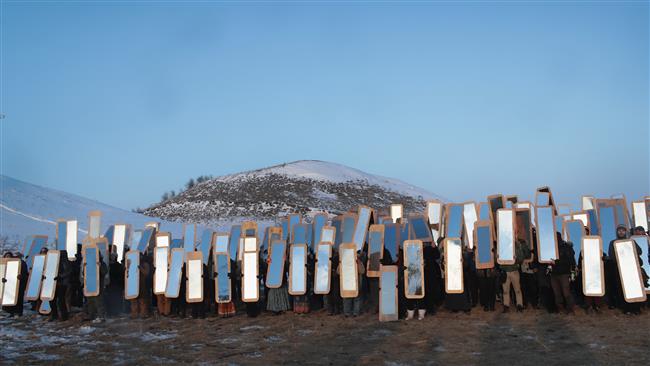US judge denies tribes' request to halt Dakota Access pipeline work
A US federal judge has rejected a request seeking to halt construction of the final link in the controversial Dakota Access Pipeline project, dealing a blow to Native American tribes and environmental activists.
The request was filed by the Standing Rock Sioux and Cheyenne River Sioux tribes, who argued that the project would prevent them from practicing religious ceremonies at Lake Oahe, which is also the water source for both tribes.
After an hourlong hearing on Monday evening, US District Judge James Boasberg ruled that as long as oil isn't flowing through the pipeline, there is no threat to the Cheyenne River and Standing Rock Sioux tribes, but he added that he would hear the arguments thoroughly at another session on February 27.
The tribes requested the temporary halt last week after Texas-based Energy Transfer Partners got federal permission to lay pipe under a Missouri River reservoir in North Dakota.
A day after the US Army granted the final permit for the controversial pipeline following an order from President Donald Trump to expedite the project, the protests were held across the US on February 8.
A large number of people at demonstrations, including one outside the White House, protested against the disputed $3.8 billion project to carry North Dakota oil to Illinois.

The rallies were held in Des Moines in Iowa, in Chicago, New York City, San Francisco, and several other cities. In San Francisco, several protesters were arrested for blocking public access to a federal building.
The protesters voiced concerns about possible water contamination and damage to the land they consider sacred as a result of the project.
Led by the Standing Rock Sioux, more than 100 Native American tribes have warned that the four-state pipeline would destroy their sacred sites and contaminate their water resources.
The protest movement has attracted high-profile political and celebrity support across the country.
In a court filing on February 7, the Army Corps of Engineers said it would allow the final 1.5 miles of the more than 1,700-mile pipeline to tunnel under the Missouri River north of the Standing Rock Sioux Reservation.

In doing so, the Army cut short its environmental impact study of the pipeline despite a January 18 notice that it would accept public comments on the project through February 20.
The Standing Rock Sioux has vowed to shut pipeline operations down if construction was completed.
The pipeline would be the first to transport crude oil from Bakken shale, a vast oil formation in North Dakota, to refineries in the US Gulf Coast.
The previous US administration halted the project after months-long protests. But President Donald Trump has ordered the re-launch of the Dakota Access Pipeline.
'Sinwar still supervising Gaza war; Israel deliberately delaying talks on captives'
VIDEO | Press TV's news headlines
UK's Rwanda deportation plan morally disgraceful
VIDEO | Raeisi inaugurates Iranian-built mega multipurpose project in Sri Lanka
VIDEO | Italian parliament hosts book launch on Palestine's untamed resistance
Leader: Iran’s arms sector example of turning sanctions, hostilities into opportunity
April 23: ‘Axis of Resistance’ operations against Israeli occupation
Pro-Gaza protesters in NY's Columbia University stay put despite intimidation, crackdown










 This makes it easy to access the Press TV website
This makes it easy to access the Press TV website